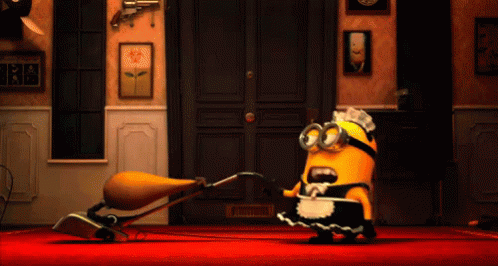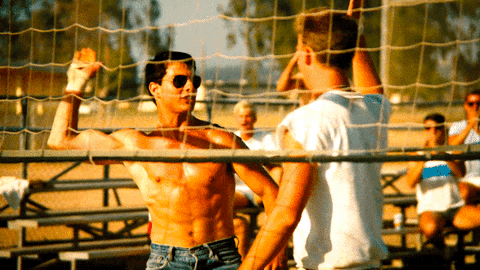Greetings to the steady Eddies who have been with us for a while… and welcome to the newbies! We’ve had a “moment” here at TL that has been long in the planning and unfolding… But the response from all of you still caught us by surprise!
First of all… THANK YOU. It beyond exhilarating to know that you were all touched enough by my story to come find me here. (And brave enough to subscribe!)
I am still processing all the feedback — from long-lost friends, colleagues of Mike, new acquaintances dealing with fresh losses. Feedback has primarily been heartfelt thanks for sharing so vulnerably… But the WSJ article is only an inch deep in describing my journey! There is so much to unpack here… I want to noodle on it a bit longer to see what I really think. I’ll address this all in a future post!
On an administrative note, we have also turned on paid subscriptions. Let me be clear, you will get the same Saturday newsletter whether you are a paid or free subscriber. Period. We are turning on paid subscriptions at this moment for three reasons:
Some readers expressed an interest in paying for the work.
We would like to self-fund eventually.
We want to direct people’s generosity to charities specific to our mission.
Speaking of, we will be giving 50% of our paid subscriptions to Experience Camps for Grieving Kids for the foreseeable future.
Thanks for your steadfast support and delight in what we are doing around here. It’s all for you.
On to the post…
This past Easter weekend, we smashed some eggs.
After coloring the shells with crayons, dye, and glitter, we gathered around the table for a family tradition. As my Russian Grandma Tillie taught us, two participants face off (egg off?), pointy ends of the eggs tapping quickly against each other to see whose breaks first.
We talk an unbelievable amount of smack during these bouts. We do victory laps. We pound our chests. And we recount previous bouts in previous years with family members who are no longer here.
My mom chimed in, “Remember how Tillie used to cheat by wrapping her meaty fist around the egg so you’d hit her fingers first instead of the egg and lose?”
I smiled. How could I forget that old babushka smiling sweetly and resolutely denying she ever did any such thing? How could I forget her sneaking me a box of Peanut Butter Captain Crunch whenever I visited the grocery store where she worked as the deli lady. How could I forget how she piled me and my friends dangerously high in the back of her sedan to take us out for ice cream? How could I forget how she would fall asleep sitting up on the couch, not spilling a drop of coffee from the mug in her hand?
Her memory, whenever it bubbles up in my consciousness, fills me with gratitude and fondness. But this warmth of feeling is not generated merely by remembering. It also owes its strength to the power of forgetting.
In the years after Mike died, I forgot a lot.
Initially, my fading ability to remember what day-to-day life was like when he was alive saddened me beyond words.
I remembered the big occasions, milestones, and some soft and tender moments. I certainly remembered the love. But I forgot the feeling of having him around. The mundane mornings and uneventful evenings. The drug store runs and the walks around the neighborhood. The bill paying and the nap taking. I still knew (and know today) the impression of him, but the stark reality of his daily existence continuously trickled like water out my hands, no matter how hard I smushed them together.
Even if you haven’t lost someone close, you know a version of this feeling. It’s visiting a snow-capped and tree-filled mountain range, hiking its trails, swimming its lakes, camping its valleys. Your senses are full of pine needles and bird calls and sun and shade. The chill when you get out of the lake, the sting of campfire smoke in your eyes, the smell of your old sleeping bag… It’s at your fingertips. It’s undeniable. It’s not always pleasant. You don’t worry about remembering or forgetting it.
But then you depart. You steal glances of the fading mountain outline in the rearview mirror as you drive away. The details — the good, the bad, the utterly mundane — slip away. Only an overarching impression of wild beauty remains.
And if you have lost someone close… You know the fear that accompanies the forgetting. The desperation. You will never add a new memory of them (which is why stories are such a gift when consoling). So we try to hold onto every single memory we have. We want to stay lost in the trees, debilitated by the thought of never returning.
But it’s the view of the forest that will save us. That will allow us to know and remember the love of the past… while setting us free to experience the present. In other words, grieve.
“Forgetting is required for emotional well-being.”
“… for letting go of resentments, neurotic fears, and hurtful experiences that fester. Too much memory or too little forgetting imprisons with pain,” Scott A. Small, neuroscientist and Alzheimer researcher, explains in his book, Forgetting: The Benefits of Not Remembering.
According to Small, aspects of forgetting are natural, nurturing, and needed. Forgetting shapes our experiences into a useful story while whittling away our fears, our regrets, our resentments with a “memory chisel”. We are unconsciously “sculpting” our memories so we can move forward.
“Memory is not a museum of personal history, rather a gallery of memory art,” Small summarizes.
To remember the truth of someone is to forget the details.
To honor their memory is to release your resentments.
To grieve them is to let the flawed human melt away to reveal the legend.
In this way, the memories of life with Mike now have an intense, larger-than-life essence to them. The feeling of being loved and loving him. Witnessing his devotion to the kids. His strong and slender hands.
I have an even purer love for Mike now than I did when he was alive. How could I not? I see him more clearly. The contractions of our humanity that used to get in the way have been forgotten. (Weren’t you supposed to pick up the dry cleaning? The milk? The kids??)
I have traded in the memory of his humanness for the radiance of his spirit.
Grandma Tillie too. The grievances my mother had with her (as any daughter has with any mother) have long faded away. She’s able to remember her tough-as-nails mom with fondness rather than bitterness. She accepts Tillie’s shortcomings, knowing that she did the best she could with what she had. She focuses on all Tillie could and did give her, rather than what was lacking.
In other words, my mother is not trapped by the memories of her mother. She is only gifted by them.
When The Luminist was still in the single-digit post numbers,
I sent Leona (my beloved collaborator and editor!) a draft of a post breaking down compassion with an elaborate (and indecipherable) metaphor of a diving platform. She knocked out a rewrite but neither of us were feeling it. I took another crack. She took another crack. Still no “undercurrent" was appearing, no holistic message, nothing that was worthy of you, dear reader.
Finally, on Thursday night (when we are usually buttoning things up and doing the voiceover), we decided to bail. After all the hours spent, words written, thoughts discarded, the entire thing went into the trash. We pulled out a back-up post and called it a day.
(I’m really new at this writing game… I am way better at speaking! Hint hint, wink wink.)
I was worried. Super worried. Would the next post be this awful? Maybe I didn’t have what it takes. How can I put Leona through that again?
Then the next post happened. And the next. And the next. We let ourselves move on. We didn’t get stuck fussing about “what went wrong.” We stayed present. We let the past fade. And suddenly we are here at post #23.
These posts are never easy. But they are worth it. So I’m glad I forget. Hanging on to the memory of the compassion-post-debacle would have hamstrung my way forward. It might have even ended The Luminist… Thankfully, my brain is damn good at applying the memory chisel. Now when I look back, I mostly remember how Leona and I rallied to come up with something beautiful for that week. How we didn’t settle for publishing a post neither of us liked. How we started again the next week knowing that “we can do hard things.”
As that experience fades into the background — like the outline of those mountains in the rearview mirror — I move forward every week… wiser thanks to the past but not crippled by it.
What about you?
I’m not going to ask you what you want to forget. We don’t need to put that down in writing. Instead, what do you want to remember?
What is the essence of an experience, a time in your life, a relationship, a person that you choose to bring into sharp relief… Not because it’s 100% accurate or perfect, but because it allows you to still love and still live.
To the forgotten,
Sue










Your words, your voice, your feelings & your thoughts … everything so touchingly beautiful. I have often experienced a stormy surge of fear inside that one day I will forget things about my son. And then one day I found myself choosing REMEMBRANCE over fear of forgetting. And I feel his PRESENCE so preciously in my heart & mind.
I love your words -
“To remember the truth of someone is to forget the details.”
Many thanks
This post reminded me my Russian grandfather would have us do the same egg “battle” at Passover! Thanks for the memory of a man who died too early in my life and I don’t think of often but had an important impact on me.